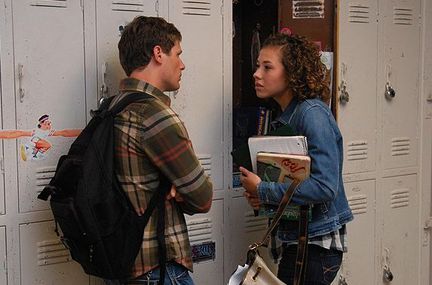TV Continues to Grapple with Abortion

Earlier this week, The New York Times reported on a TV trend: The rise in 2019 of storylines involving “matter-of-fact” abortions, on such shows as Hulu’s Shrill, HBO’s Veep, Netflix’s GLOW and Fox’s Empire, to name but a few. Whether or not the characters who had abortions on those shows were "matter-of-fact" about it is certainly up for debate. TV characters have been getting abortions since the ‘70s, and from what I recall not without much soul-searching. Regardless, the point of the Times story is taken: On television today abortion is sometimes presented as an inconvenient procedure, rather than something more intense, to put it in the simplest terms. Is this realistic storytelling? That depends on whom you ask.
What came to mind for me as I read the piece was the lack of references to well-known series that opened the door to stories about abortion on television and explored it from all sides, most notably the Norman Lear sitcom Maude, in which the forty-something title character (played by Bea Arthur) learned she was pregnant and after much emotional turmoil decided it best given her age to have the procedure. This played out in a two-part episode that was telecast during the series’ first season, in 1972, before Roe v Wade in 1973. The controversy was seismic. Several CBS affiliates refused to air the show. The network was flooded with phone calls and letters.
The following year, on the soap opera All My Children, and after it became legal, young heroine Erica Kane (played by Susan Lucci) famously had the first abortion in daytime drama. Erica chose to terminate her pregnancy because she wanted a career. Again, there was great controversy. But All My Children did what daytime soaps (and only daytime soaps) do so well … took its time exploring the day-to-day, real-time challenges that arise for people as they go about their lives. Nothing is solved in 30 or 60 minutes.
Flash forward to 2010 and another TV abortion springs to mind, one told as much from the male as the female point of view. Friday Night Lights tackled the topic head on, as pregnant teenager Becky (Dora Madison, top right), a tenth grader, chose to have an abortion, to the horror of her boyfriend Luke (Matt Lauria, top left) and his parents, evangelical Christians who wanted their grandchild. Although nobody (including Luke’s parents) treated Becky poorly for having an abortion, Luke’s mother targeted Tami Taylor (Connie Britton), the compassionate principal (and former guidance counselor) to whom Becky had turned for advice. Tami never told Becky to have an abortion but did let her know that it was her decision to make. The performances were superb; the writing unparalleled.
For me, though, the abortion story that grabbed me at the time and has stayed with me to this day was Lulu Spencer’s pregnancy after a one-night stand with Dillon Quartermaine, and her eventual decision to terminate, on General Hospital. (Lulu is the daughter of legendary supercouple Luke and Laura.) I don’t know how old Lulu was then, but she was in her very early twenties at most, though her maturity level was somewhat younger. Her decision did not come quickly, or easily, but Lulu decided that she wanted to end her pregnancy and, as on Friday Night Lights, the father was devastated.
Dillon pleaded over and over for Lulu to not abort their child. His very wealthy family tried their hardest to change her mind, too, gently offering her whatever emotional, financial and legal assurance she desired. The demonstrative Tracy Quartermaine, who was Lulu’s step-monster at the time, and the biological mother of Dillon, did her share to try to convince Lulu to keep her baby. She even admitted that she had an abortion many years earlier and came to regret it. As the family ganged up, Lulu felt increasingly outnumbered, but she stood by her decision … further exasperating the Quartermaines. But in the beautifully written (and acted) scenes that followed, Tracy instantly switched gears and came to Lulu’s defense, making clear that the final decision about what she would do with her body was hers and that it fell to everyone else to respect that. A distraught Lulu needed her mother, who was catatonic at the time, but Tracy stepped up and gave her all the support she needed. Throughout, it remained clear that Dillon was suffering, too. Lulu and Dillon both grieved, but everyone survived and moved on with their lives.
Had the broadcast networks not cancelled all but a handful of their daytime dramas we might be seeing more stories of this kind in which incredibly sensitive issues are given the time they deserve and all sides and opinions are taken into consideration in the process. That’s called human drama. When they are on point, daytime soaps do it best. For proof, consider the current story – also on General Hospital -- of Mike Corinthos’ ongoing struggle with the advancement of Alzheimer’s Disease and the impact his ordeal is having on his loved ones … which is bringing the family closer together even as the ravages of the disease threaten to tear them apart. It has and continues to be informative, enlightening and something very special.
Click on the social media tiles above or below to share this content with your friends and colleagues.
The opinions and points of view expressed in this commentary are exclusively those of the author and/or subject(s) and do not necessarily represent the views of MediaVillage.com/MyersBizNet, Inc. management or associated bloggers.


